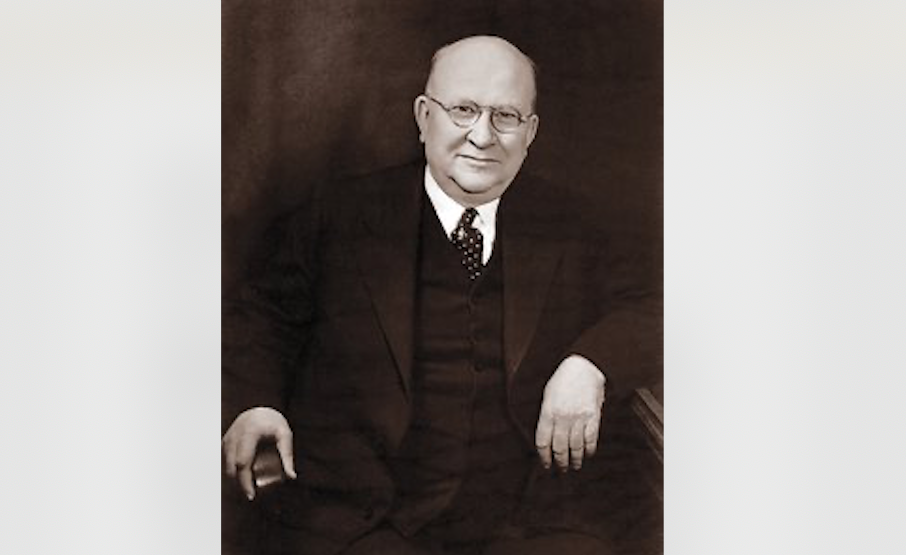Sophia was dying.
It was October 14, 1876 – a Saturday – and everyone inside the Toronto home was heavy-hearted.
Only minutes earlier, John and Sophia Ironside, both committed members of the Plymouth Brethren, a Christian denomination with ties to Anglicanism, were eagerly anticipating the arrival of their new baby. But then came the birth and the devastating declaration that the boy had not made it – and it was now looking like Sophia would not either.
Childbirth has always had its dangers, but especially prior to the advent of modern medicine. With hope dashed for saving the little baby, attention turned to treating Sophia. The tiny boy was set aside, away from his mother. Fortunately, Sophia responded to the emergency treatment.
But according to reports, up to forty-minutes had passed when suddenly – inexplicably – a shocked nurse noticed the newborn moving. A faint pulse was found. Swooping Sophia and John’s baby up in her arms, the woman sprinted towards a warm bath of water, plunging the little boy’s tiny body into it. The shock did the trick. Roused and responding, Harry began to cry.
God has a plan for every life, of course, and sometimes the mystery and intrigue behind His ways remain shrouded from sight. But looking back now, it’s clear the Lord had His reasons for sparing Harry’s young life.
John Ironside, the boy’s father, who was a bank teller by day. But he preached and witnessed every chance he could get – so much so that he was nicknamed “The Eternity Man” for constantly asking people where they planned to spend the afterlife. He died of typhoid when little Harry was just two-years-old.
But the apple didn’t fall far from the tree, as a young Harry began memorizing Scripture at the age of three. By the time he was ten, he was teaching a Sunday school class in his new city of Los Angeles under a tent made of sewn-together burlap bags. But a traveling evangelist and friend of the family named Donald Munro came for a visit and challenged the precocious youngster.
“Are you born again yet, my boy?” the man asked. It struck the boy that he was full of head knowledge and Bible verses – but had yet to have a conversion experience. He suspended his teaching and six months later fell to his knees one night and turned his life over to Christ. “I rested on the Word of God and confessed Christ as my Savior,” he would later write of the moment.
Harry Ironside would later join the Salvation Army, traveling the country and preaching upwards of 500 sermons per year. Additional missionary opportunities would put him in constant motion. He preached in churches, tents, auditoriums and on street corners. He often wore a sweater with the phrase, “PREPARE TO MEET THY GOD,” emblazoned across its front. There was nothing subtle about Harry Ironside. Although never formally educated, he was known to read two to three books a day. A photographic memory enabled him to memorize long passages of Scripture.
Harry would go on to marry Helen, and they had two sons.
One of the highlights of Ironside’s youth had been attending a revival where the famed evangelist Dwight L. Moody had preached. He watched and listened to Moody’s sermon on a narrow plank high up in the rafters of Hazzard’s Pavilion. The dynamism of the inspired preacher made an impression he would never forget.
The irony of that evening wasn’t lost on Harry when he was called to serve as the senior pastor of Chicago’s Moody Memorial Church in 1929, where he would go on to pastor for the next two decades. He simultaneously served as visiting professor of biblical literature at Evangelical Theological Seminary (now Dallas Theological Seminary). Reverend Ironside’s routine was to preach at Moody on Sunday and then take a late train Sunday night to additional teaching and preaching appointments. He would return to Chicago on Friday, conducting church business all day Saturday.
Harry Ironside, who died at the age of 74 in 1951, is yet one more name on the honor role of influential Christian teachers and preachers who helped shape a world and lead lost souls to Jesus Christ. But his name should be more than a footnote, or an author attached to a Bible commentary. The life of Harry Ironside is a reminder of what God can do with feeble, frail and fragile people – even those with little means and no formal education. It’s a testimony to the fact that the extraordinary can come of the ordinary – if we’re willing to be fully used and fully available to Him.






